MercoPress. South Atlantic News Agency
Tag: rice
-
Wednesday, April 9th 2025 - 08:04 UTC
Mercosur forecasts excellent rice crop, but with India back in the market, prices are expected to fall
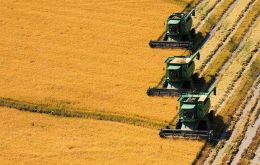
Mercosur is expecting one of the best rice harvests of the last decade, and particularly in Uruguay (exporter of prime quality rice), yields of harvested fields are indicating possible new records. However Uruguay rice farmers are facing trade, price and logistics hurdles, according to farmer Karol Pinczak.
-
Wednesday, June 5th 2024 - 14:29 UTC
Brazilian farmers clash with government over the authorization to import rice
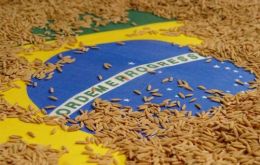
Brazilian farmers and government have clashed over the recent authorization to import rice, given the extraordinary floods and consequences suffered by the state of Rio Grande do Sul, the main producer the cereal. As a result of the situation the Brazilian Agriculture and Livestock Confederation (CNA) has filed a lawsuit against the federal government’s decision to authorize rice imports.
-
Monday, May 13th 2024 - 10:48 UTC
Brazil to buy rice from Mercosur countries to feed storm-hit Rio Grande do Sul
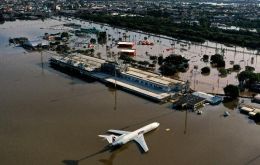
Brazil's National Supply Company (Conab) has been entrusted with purchasing one million tons of rice to feed the people of Rio Grande do Sul and avoid the intervention of middle people seeking a black market profit from the victims of the unprecedented storms. Under normal circumstances, Rio Grande do Sul accounts for 70% of Brazil's rice production.
-
Monday, March 25th 2024 - 20:29 UTC
Rice harvest in Uruguay expected to generate US$ 700 million in exports

It's rice harvest time in Uruguay, and the country expects to collect over a million tons of the cereal which is enjoying a favorable international prices prospect since the world's main exporter India, has dropped out of the market. The production of Uruguay's 150,000 hectares of rice paddies are expected to bring in close to US$ 700 million in exports this year, which will be higher than the US$ 550/600 million from the 2023 harvest.
-
Monday, August 7th 2023 - 10:07 UTC
Turmoil in global rice market as India, Thailand and Vietnam limit exports

Mercosur country members have been receiving requests for supplies of rice as the cereal price has seen a sharp surge in recent months as major Asian producers curtail their trade and supplies. This could impact millions of consumers around the world, with Asian and African countries expected to bear the brunt.
-
Friday, July 14th 2023 - 10:50 UTC
Ecuador short of rice, looks to Mercosur members as a potential supplier
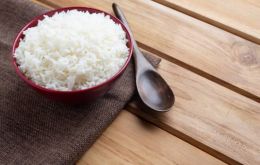
Mercosur members have been added to Ecuador’s list of potential rice suppliers as the Andean country seeks to import rice to keep its stocks full, as they have been significantly depleted due to crop issues. Ecuador shortfall production could reach some 200,000 tons.
-
Tuesday, March 7th 2023 - 10:18 UTC
Rice an exception in drought-hit Uruguay

Uruguayan President Luis Lacalle Pou and Agriculture Minister Fernando Mattos spoke to reporters after attending the ceremony Monday marking the launch of the 2023 rice harvest, which will be one of the few items with something to celebrate in a country hit by drought.
-
Wednesday, January 18th 2023 - 15:36 UTC
Brazilian rice exports jumped 85% during 2022 compared to 2021

As Brazil continues to expand its agriculture frontiers and farming techniques, two cereals of which the country has been historically an importer are becoming increasingly self-sufficient. This is particularly true for wheat and rice, with most crops in the southern states of the country.
-
Wednesday, October 5th 2022 - 14:51 UTC
Brazil, with Mercosur partners, plans to become a global rice exporting hub

As India, the world leader in exports restricts rice shipments, Brazil signaled at the World Trade Organization (WTO) that together with Mercosur partners, it is ready to expand exports and help with global food security.
-
Tuesday, May 31st 2022 - 10:00 UTC
Brazilian rice exports booming; challenge for all three Mercosur partners
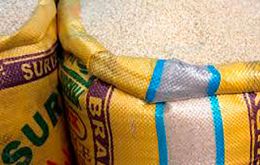
Brazilian rice exports (husk base) totaled 451.3 thousand tones during the first quarter, more than double the same period in 2021 when 207.7 thousand tons were shipped, reports the Brazilian Rice Industry Association (Abiarroz).
